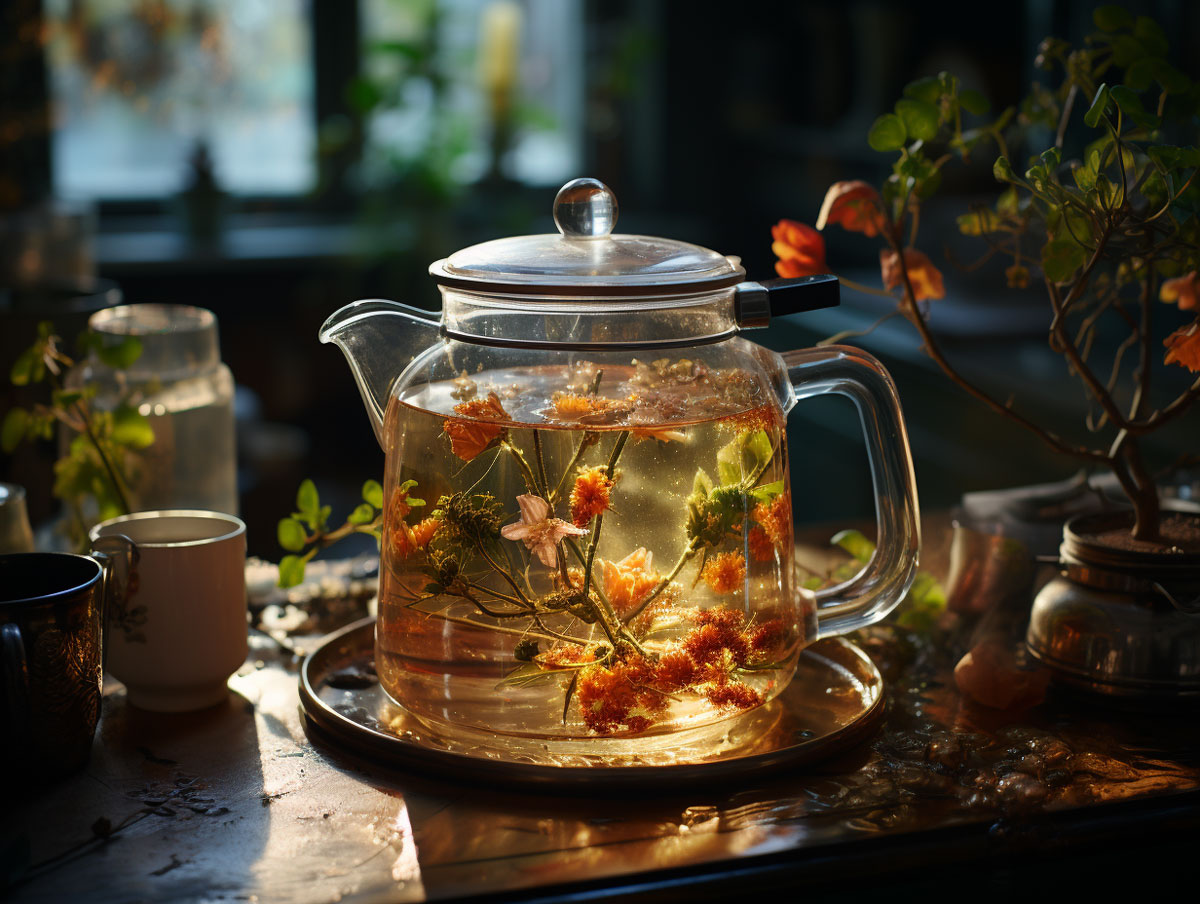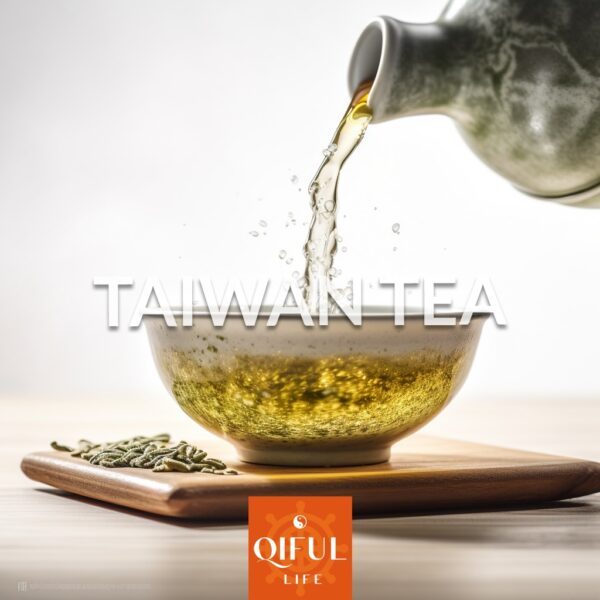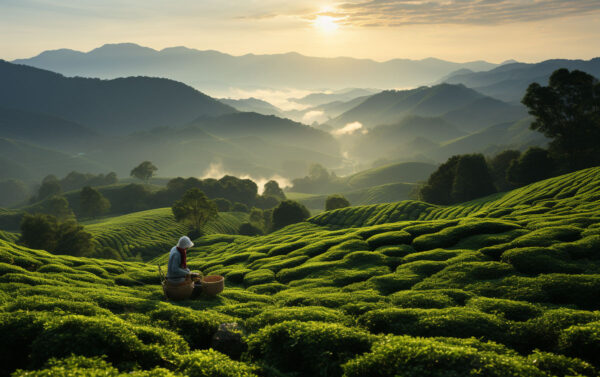Gourmet Tea » Tea Blog » Tea Information » What is the Best Water for Making Tea?

What is the Best Water for Making Tea?
Water types play a major role in tea drinking. With all the different kinds on the market it is difficult to know which types are best suited for the making. In this article, we explore all the different types for tea and provide a recommendation for the best type of water for tea making.
Types of Water for Tea
Tap Water
Tap water is sourced from natural bodies like lakes, rivers, wells, or reservoirs and processed at water plants. It undergoes purification steps including coagulation, sedimentation, filtration, and disinfection. Pumped through distribution pipelines, it’s subject to national drinking water standards in many places, allowing direct consumption. In areas without such regulations, boiling is recommended before drinking.
Alkaline Water
Alkaline water is defined as water with at least a pH7. It is rarely used for tea drinking since the high alkalinity composition changes the flavor of tea.
Sparkling Water
Sparkling water is typically only mixed cold with tea. The tea needs to be already brewed with another type of water such as mineral water. Rarely does any tea maker pour sparkling water into a kettle, boil it and then use it to make tea.
Spring Water
Spring water is the most common. The quality of water varies depending on its source. Given that the source water meets national drinking standards for safety and sensory quality, flowing mountain spring water sourced from mountains or deep wells is generally preferred for superior water quality. Groundwater stands out as one of the optimal choices.
Packaged Water
Packaged water, purified water, and distilled water typically lack impurities, making them preferable choices for general consumption. Natural spring water meeting the “three low” index criteria—low mineralization, low hardness, and low alkalinity—is recommended for tea making.
Mineral Water
Mineral Water is a popular option for tea making. A common way to make tea to source or purchase packaged mineral water. Packaged products, however, means excessive plastic use and exposure so may not be preferred for many people.
Distilled Water
Distilled water is essentially pure water devoid of minerals. When used for brewing tea, its quality closely resembles that of filtered water. The resulting tea infusion tends to be lighter in color with excellent transparency.
Reverse Osmosis
This is rarely used in Asia but is increasingly popular in the USA for making tea. The aroma of tea is changed but the soup color is clear and free from impurifications.
What is the Best Water for Making Tea?
The hierarchy of water quality typically ranks mountain spring water as the finest, followed by mineral water, purified water, and tap water as the least preferred option. Mountain spring water is primarily sourced from rock valleys in mountainous regions or emerges from deep underground sources. Renowned for its stability, mountain spring water is often favored for its pristine quality. When used for making tea, it enhances the extraction of color, aroma, flavor, and texture from tea leaves, resulting in a more satisfying brew.
Water with very soft, soft, or medium-hard qualities is ideal for brewing tea. However, water that is excessively hard, characterized by high levels of calcium and magnesium ions, can hinder the release of tea aroma and the dissolution of flavor compounds, resulting in a bland or bitter brew. Tap water typically falls between the spectrum of hard water and very hard water, diminishing the aroma and taste of the brewed tea by several levels.
Recommended Water for Different Teas
- Use mineral or natural spring water for any type of tea.
- It is best practice to boil water several times before pouring into a teapot. Doing so helps remove impurities.
- Regardless of which water type you choose, tea is best boiled with hot water. However, some teas such as light Oolongs can be brewed with cold water.
- Microwaving any type of water to make tea is generally not best practice. Water needs to come to a full boil and microwaves struggle.
- Use your water type of choice to clean teaware before making tea. Heating a teapot and cup helps introduce the teaware to heat, moisture and flavor.
Summary
Overall, mountain spring water is the top choice for tea making.
| Water Type | Description | Suitability for Tea | Notes |
|---|---|---|---|
| Tap Water | Sourced from lakes, rivers, wells, or reservoirs; processed and purified at water plants; meets national drinking standards. | Least Preferred | May require boiling to ensure safety and improve taste. |
| Alkaline Water | Water with a pH of 7 or higher. | Not Recommended | Alters the flavor of tea due to its high alkalinity. |
| Sparkling Water | Carbonated water; typically mixed with cold tea. | Not Suitable for Brewing | Should be used only as a cold mix with pre-brewed tea. |
| Spring Water | Sourced from mountain springs or deep wells; quality varies by source. | Highly Preferred | Best choice if meeting “three low” criteria (low mineralization, hardness, and alkalinity). |
| Packaged Water | Includes purified or distilled water; generally free of impurities. | Preferred | Choose natural spring water with low mineral content for optimal results. |
| Mineral Water | Contains minerals; often sourced from natural springs. | Preferred | Commonly used but excessive plastic use can be a concern. |
| Distilled Water | Pure water with no minerals. | Moderately Preferred | Produces lighter, clearer tea; lacks some flavor due to the absence of minerals. |
| Reverse Osmosis | Water filtered through a reverse osmosis system, removing most impurities. | Moderately Preferred | Produces clear tea with altered aroma; more popular in the USA than in Asia. |
| Mountain Spring Water | High-quality water sourced from rock valleys in mountainous regions or deep underground; known for stability and purity. | Best Choice | Enhances color, aroma, flavor, and texture of tea. |






